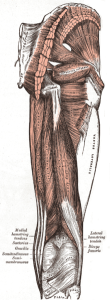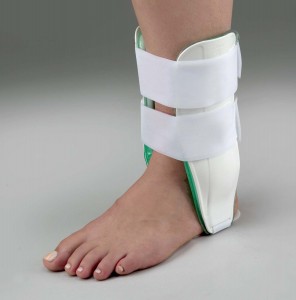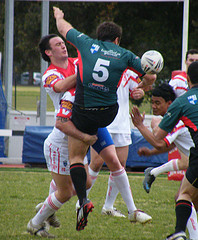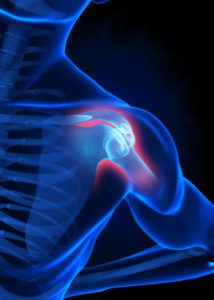As a sports physiotherapist, it is important that you not only rehabilitate athletes but ensure that they are fully fit to return to play. As many of you are fully aware, objective measures such us a full active range of motion does not determine an athlete’s readiness to RTP. Accordingly, a comprehensive assessment of an athlete’s function, via functional performance testing, becomes an absolute assessment necessity. This article will discuss current research on the the role and implementation of functional performance testing, as well as some tests that you may use in your own clinical practice.
We all know that hamstring strains are common injuries within sports that involve sprinting and jumping. In fact, they represent a significant proportion of muscle injuries: 50% in sprinting, 40% in soccer (Yeung et al, 2009) and 14% in Australian Rules football (Gabbe et al, 2006). They have been shown to be more common than any other muscle injuries and players are 2.5 times more likely to suffer a hamstring strain compared to a strain of their quadriceps (Woods et al, 2004). This is significant as Small et al (2010) found that soccer players miss on average 3 competitive matches per hamstring injury. Consider the huge impact on the success of sporting teams when high profile players are injured!
Ankle injuries are a ridiculously common sports injury. Ankle injuries are the most common injuries in a wide variety of popular sports. In fact, it has been suggested that ankle injuries account for 10-30% of all sports injuries; 77% of which are lateral ankle sprains. Thus, it goes without saying that knowledge of evidence based management and current best practice is essential for lateral ankle sprains. This article will discuss the current evidence for the use of bracing following acute ankle sprains.
In the world of sports physiotherapy and sports medicine articular cartilage defects of the knee are commonly seen (Reinold et al., 2006). Unfortunately, in these cases we find non-operative approaches are ineffective given the avascular nature of articular cartilage. Thus, there has been the development of a large number of surgical techniques to address articular cartilage lesions. This article will discuss a relatively new technique, Matrix-induced autologous cartilage implantation or MACI, including an overview of technique, mid-term outcomes and of course the rehabilitation implications for physiotherapists.
I will start by saying this has nothing to do with the Governator’s recent indiscretions (luckily). Have you ever seen the movie Pumping Iron? It is a docudrama which covers the lead up to the 1975 Mr Olympia contest, which Arnold Schwarzenegger wins for the sixth consecutive time. Now whilst there are not many applications to the world of sports physiotherapy, unless of course you work closely with bodybuilders, there are a few gems in the film which are relevant…
If you are a sports physiotherapist that manages athletes that compete in contact sports, then I am sure that you have treated contact or collision related injuries. Now sports physiotherapists who work with rugby league will take specific note and interest with this research. Do not despair if you do not work with rugby league, you may have experience working with similar contact sports such as rugby union. This post discusses new research on physical collisions in professional rugby league, their impact on injuries and the sports physiotherapy implications.
Introduction Sports physiotherapists will regularly (I’m talking every day) rehabilitate knees that have undergone ACL reconstruction. As the vast majority of you will know, it is a common injury with a relatively long rehabilitation timeframe (generally 6 – 12 months depending on surgeon’s preference). This long rehabilitation and progression through to return to play (RTP) […]
Do you work to return your injured athletes to play as quickly as possible? Hang on, before you say ‘Duh, of course I do!’, I want you to think about your previous season as a sports physiotherapist. Did anything ever impact on how quickly you allowed an injured player to return to play? This post discusses the impact that the team losing can have on RTP planning.
We all know that hamstring injuries are an exceptionally common sporting injury. In some sports, such as Australian Football League (AFL), they have the highest incidence of any injury (Warren et al 2010). Therefore the sports physiotherapist will routinely assess and rehabilitate these injuries. During this process the athlete and coaching staff will frequently demand timeframes of return to training and play. Thus, if you are a sports physiotherapist who treats these athletes you should be acutely aware of the clinical predictors, or prognostic indicators, of return to play timeframes following hamstring injury.
Anterior shoulder dislocation is a common injury in an athletic population, particularly young males competing in contact sports. Anterior dislocation accounts for up to 96% of all shoulder dislocations (Goss 1988). This means, therefore, that the sports physiotherapist will encounter this condition with high frequency. Accordingly, we must be confident that the treatments and advice that we deliver to these athletes is evidence based. This article discusses the current evidence regarding surgical or conservative management for acute anterior shoulder dislocations.








